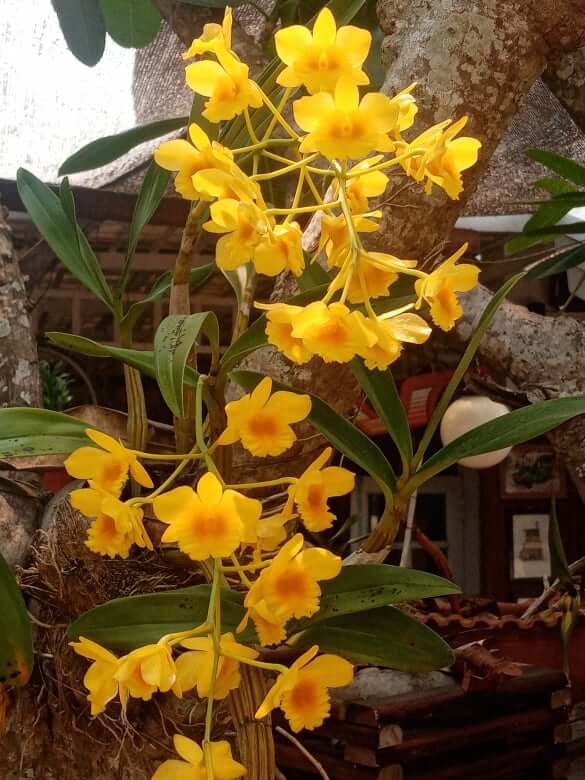- Home
- Aphid orchid pests
Aphid Orchid Pests
Aphid orchid pests are one of the most common orchid pests that growers deal with. These small, soft-bodied insects suck the sap out of the orchid leaves and stems, causing the plant to weaken and become stunted. If left untreated, aphids can quickly spread and damage the entire orchid plant. In this article, we will discuss how to identify aphids, describe the damage they cause, and provide effective methods for controlling these orchid pests.
Identification of Aphids

Aphid orchid pests are small, pear-shaped insects that are usually less than 1/8 inch in length. They come in a variety of colors ranging from green to yellow, black, brown, and even pink. Aphids have soft bodies and long, slender legs that are adapted for crawling and clinging to plant surfaces.
Aphid orchid pests reproduce rapidly and can quickly spread from plant to plant. They lay eggs in the fall, which hatch in the spring, giving rise to the first generation of aphids. As the weather warms up, aphids begin to feed on the new growth of the orchid plant, causing damage to the leaves and stems.
Damage Caused by Aphid Orchid Pests
Aphids feed by sucking the sap out of the orchid leaves and stems, causing the foliage to become deformed and discolored. This damage can lead to wilting, stunted growth, and in severe cases, the death of the orchid plant.
Aphids also excrete a sugary substance called honeydew, which attracts other insects and causes fungal growth on the orchid leaves. This can further damage the plant by creating a hospitable environment for disease.
Effective Ways to Control Aphids
Monitoring your orchid plants regularly is the first step in controlling aphids. Early detection can prevent the spread of infestation and ultimately save the plant.
Non-chemical control methods for managing aphids include physically removing them from the orchid plant, washing them off with a strong jet of water, or using beneficial insects such as ladybugs or lacewings to help control the aphids. Techniques like pruning infested leaves and using sticky traps can also be effective in keeping aphids at bay.
Insecticides are another option for controlling aphids. However, not all insecticides are created equal. Consider using eco-friendly, chemical-free products that won't impact the environment or your orchid plant's health.
Below are a few effective ways to control aphids:
Neem Oil: Neem oil is a natural insecticide that is extracted from the seeds of the neem tree. It is available in many forms and can be used directly on the orchid plant. When applied, neem oil coats the aphids and suffocates them, disrupting their feeding behavior, mating, and egg-laying. Neem oil also acts as an insect growth regulator, preventing subsequent generations of aphids. Most plants love neem oil and you can see and feel a visible difference after treatment.
Soapy Water: Soapy water is a straightforward and effective solution for controlling aphids. Simply mix a small amount of dishwashing soap with water and spray it directly onto the orchid plant. This solution will coat the aphids, suffocating them, and making it difficult for them to feed on the plant.
Horticultural Oil: Horticultural oil is another type of oil that can be used to control aphids. It works by smothering the aphids and disrupting their feeding behavior, similar to neem oil. Horticultural oil is usually applied in a diluted form according to label directions.
Insecticidal Soap: Insecticidal soap is a type of soap that is specifically designed to control insects. It works by breaking down the waxy outer layer of the aphids, causing them to dehydrate and die. Insecticidal soap is safe for use on orchids and can be sprayed directly onto the plant.
Preventing Aphid Infestations
Preventing aphids from infesting your orchid plants is always the best approach to pest management. By following the proper preventive measures, you can create a hostile environment that makes it difficult for insects like aphids to thrive.
Here are some easy preventive measures you can follow:
Keep Your Orchid Plants Healthy: Healthy orchid plants are less susceptible to insect infestations. Provide your plant with the appropriate amount of sunlight, water, and nutrients to encourage healthy growth.
Clean Your Orchid Plant Regularly: Keeping your orchid plant clean and free from dead leaves or other debris will minimize hiding spots for aphids.
Quarantine New Plants: If you're introducing a new plant to your orchid collection, keep it separate from other orchids for a few days. By doing this, you can detect if the plant has any pre-existing insect infestation.
Inspect Your Orchid Plants Regularly: Check your orchid plants for signs of aphids, such as curled or discolored leaves. Early detection of aphids will prevent the spread of the infestation and minimize the damage they can cause.
Aphids are a common pest and are easily treatable. The key is to treat your plants at the first sign of infestation to get the situation under control.


